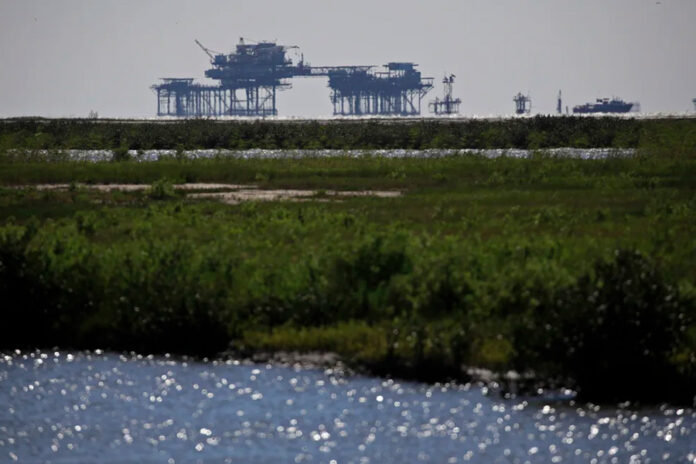President Joe Biden is expected to permanently ban future offshore oil and gas development in parts of the Atlantic and Pacific oceans in a way that could be especially difficult for the incoming Trump administration to undo.
Biden’s planned executive order will invoke the 1953 Outer Continental Shelf Lands Act, a law that gives presidents broad authority to withdraw federal waters from future oil and gas leasing and development, according to an administration source familiar with the plans.
The law does not give presidents explicit authority to revoke the action and place federal waters back into development, meaning President-elect Donald Trump would have to get Congress to change it before he could reverse Biden’s move.
As Biden’s presidency draws to a close, environmental and climate groups have advocated for him to withdraw areas off the Eastern Gulf of Mexico, as well as other parts of the Atlantic and Pacific oceans – giving the areas permanent protections from future drilling. The move would guard against future oil spills and adding more planet-warming pollution from fossil fuels to the atmosphere.
“We hope it will be part of a very vast area,” Oceana campaign director Joseph Gordon told CNN, adding Biden’s actions “would extend and make permanent those protections.”
Despite a friendly posture towards the oil and gas industry, Trump also moved to ban offshore drilling while president. After proposing a major expansion in offshore drilling early in his first term, Trump in 2020 extended a ban on future oil drilling in the Eastern Gulf and expanded it to include the Atlantic coasts of three states: Florida, Georgia and South Carolina.
“Every president this century has recognized that some areas of the ocean are just too risky or too sensitive to drill,” Earthjustice vice president of litigation for lands, wildlife and oceans Drew Caputo said in a statement.
The White House declined to comment. Biden’s move was first reported by Bloomberg.
Energy analysts told CNN the move won’t make much of a difference in US oil production, which has set new records under Biden.
It’s “not particularly consequential for US exploration and production going forward,” said Tom Kloza, global head of energy analysis at the Oil Price Information Service. Kloza noted there’s plenty of existing offshore rigs pumping oil in the Gulf of Mexico and added that offshore projects typically take 6-8 years to come online.
“I don’t see it as having any real impact on US supply, exports, imports,” Kloza said.
Still, the American Petroleum Institute blasted Biden’s decision, calling it a “misguided approach.”
“We look forward to working with the incoming administration to bring the benefits offshore oil and natural gas production provides to the United States through jobs, investment and domestic energy security,” API senior vice president of policy, economics and regulatory affairs Dustin Meyer said in a statement.
In a separate coming announcement, the Biden administration is also expected to declare two new national monuments in California in the coming week, a source familiar with the planning told CNN.
Biden will establish the Chuckwalla National Monument in Southern California near Joshua Tree National Park and the Sáttítla National Monument in Northern California, the source said. Native tribes have been actively pushing the administration to protect the land from energy development.
Biden has so far conserved or expanded ten national monuments as president.
By Ella Nilsen and Matt Egan, CNN

